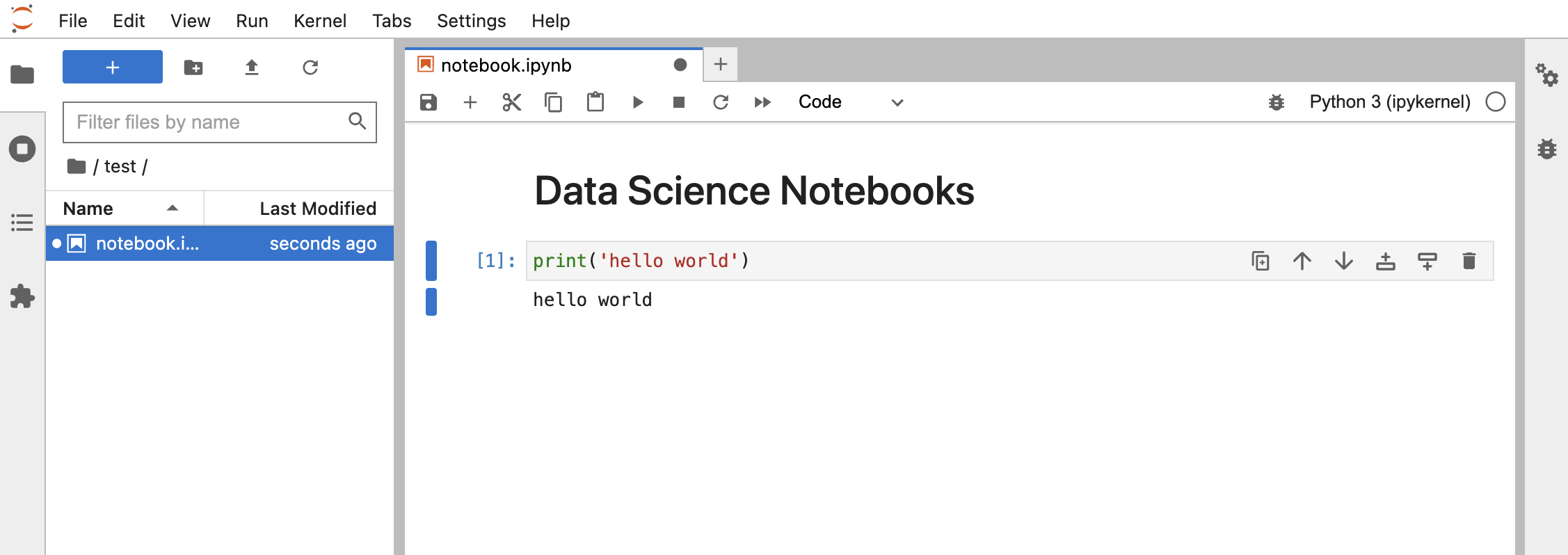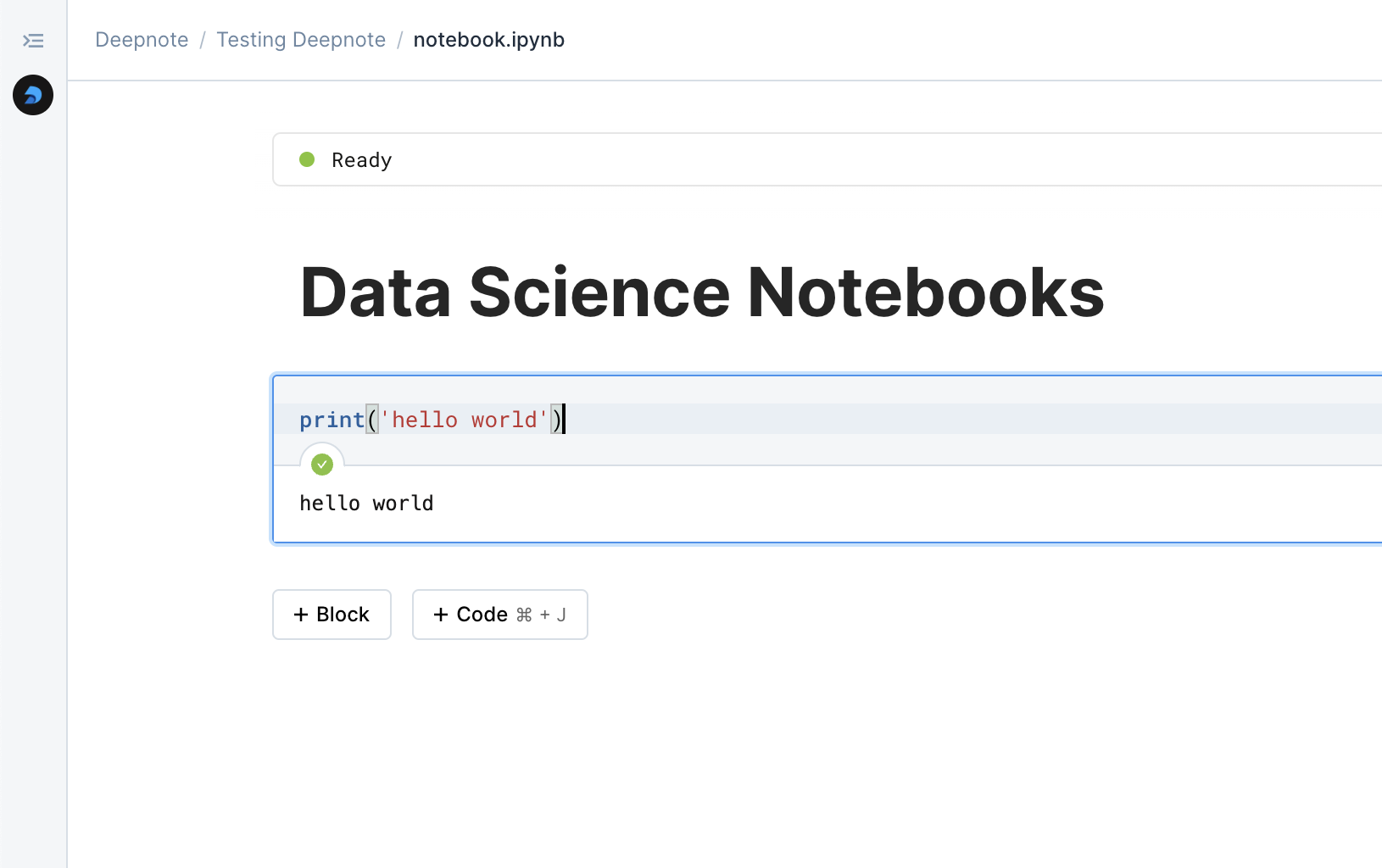

JupyterLab

Comparing two data science notebooks.






JupyterLab is the latest web-based interactive development environment for notebooks, code, and data. Its flexible interface allows users to configure and arrange workflows in data science, scientific computing, computational journalism, and machine learning.
Deepnote is a collaboration first data platform. It provides a powerful, cloud-based workspace that allows users to easily explore, collaborate on, and share data, create interactive charts and dashboards, and build and deploy machine learning models.
Let’s break it down.
AI
Let’s start with the hottest topic, AI. Deepnote features block AI to help you write, fix, and explain your code. As of the time of writing, Deepnote has a best-in-class AI autonomous AI agent that is able to create SQL blocks, Python Blocks, text blocks, all while running the notebook to make sure that it is getting the expected results, and fixing itself if it isn't. JupyterLabs has not yet implemented AI inhouse, however, they do have an OSS implementation that can be found here.
Exploratory Coding
Deepnote and JupyterLabs both have built in support for Python and R. JupyterLabs does not feature any coding assistance or code completion, whereas Deepnote uses state of the art AI code completion, provided by Codeium. JupyterLabs does not yet have code completion.
Connecting to your data
Connecting to your various data sources, an essential part of data science, is handled eloquently by both platforms. Deepnote features a dizzying array of built-in data connectors for major cloud platforms, such as BigQuery, Snowflake, Redshift, Athena, and Clickhouse. This is complemented by both platforms with an easy drag-n-drop for CSVs. Deepnote also has file based connections, where it has first class integrations with Google Drive, Google Cloud Storage, Amazon S3, Dropbox, OneDrive, and Google Sheets. Deepnote also allows for first class integrations with version control software such as Git and GitLab. Overall Deepnote has over double the amount of first class integrations. JupyterLabs serves as a general purpose notebook, and has no first class integrations.
Interacting and visualizing your data
SQL is an important chunk of any notebook, and both Deepnote and JupyterLabs have you covered with Notebook SQL blocks, which come equipped with code completion and built in data frame outputs. Additionally, Deepnote comes with an in-app schema explorer, so you can get a grasp of your databases visually.
Publishing your data
If you don’t report your findings, did you find anything at all? JupyterLabs allows you to share your notebook, with both visualizations and code available to public users. Deepnote ships with fully fledged reporting and dashboarding features called Deepnote Apps. This allows Deepnote to make it easy to schedule your notebook, prepare public views, and even have interactive views. Both platforms ship with fine grade permissioning that allows organizations to share reports publicly and within the organization.
Collaboration
Deepnote took the concept of Cloud Jupyter, and elevated it to a collaboration and team first platform. Deepnote features enterprise grade collaboration features such as fine tuned permissions, collaborative notebooks, multi-user editing, and commenting.
Pricing
Deepnote comes equipped with a free tier, and a free two week trial on signup, with no credit card needed.
JupyterLabs is free, as it is covered under the BSD license.
Conclusion
In 2023, the comparison between JupyterLab and Deepnote revealed distinct strengths in their respective offerings.
Deepnote boasts cutting-edge AI capabilities, including autonomous AI agents, offering a significant advantage for coding. It also provides a rich array of data connectors and integrations for cloud platforms and version control, making it a powerful choice for data professionals.
In contrast, JupyterLab is an open-source and flexible environment, suitable for general-purpose notebook usage, but it lacks AI-driven features and first-class integrations.